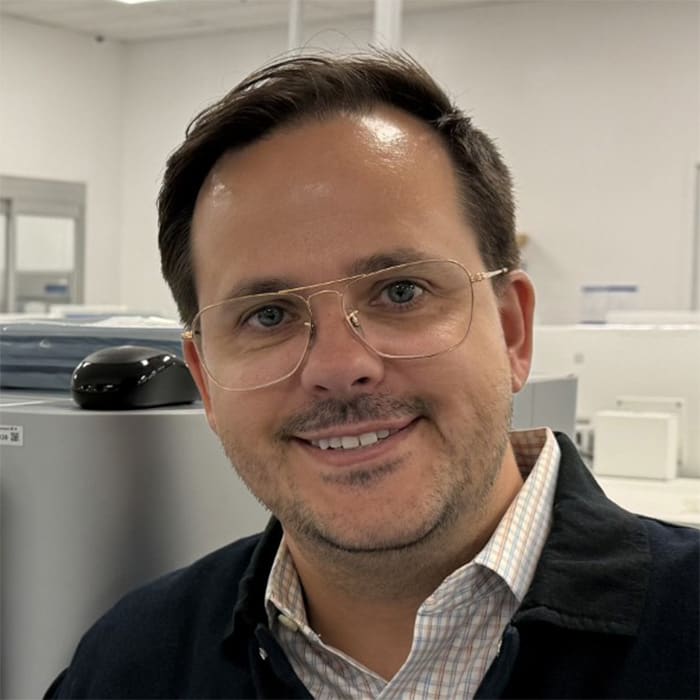
Steven Springer
Vice President Operations at Caris Life Sciences, Phoenix, Arizona, USA
False

Vice President Operations at Caris Life Sciences, Phoenix, Arizona, USA
Molecular pathology is advancing at lightning speed, but with this progress come challenges – particularly automation without ready-made solutions and the difficulty of attracting and retaining skilled laboratory professionals across multiple specialties. As a Clinical Lab Scientist and Pathologists’ Assistant working in molecular profiling, I have had the opportunity to lead efforts to address both.
On the automation front, the tools our field needs often do not yet exist to handle high-throughput sample volumes. To solve this, I looked outside the lab to industries like Amazon and Overstock, studying how they manage materials at scale. I then helped integrate similar solutions into laboratory workflows – conveyor belts for specimen movement, package openers, x-ray scanners, custom robotics, and AI tools such as optical character recognition. These innovations streamline routine tasks, reduce errors, increase throughput, and ensure scalability and standardization. Ultimately, they improve patient care by minimizing lab-driven mistakes.
Equally important is the challenge of recruiting and retaining skilled professionals, including lab assistants, histotechnologists, molecular technologists, Pathologists’ Assistants, and pathologists. Addressing this requires a long-term strategy rooted in education, advocacy, and visibility. In my role as former vice chair of the AAPA Legislative Committee, I helped advance state licensure efforts and contributed to national recognition of Pathologists’ Assistants through CLIAC and CLIA revisions.
In academia, I have worked to shape the profession as a faculty lecturer at Rosalind Franklin University, teaching students about leadership and the business of laboratory medicine. My goal is to show students that meaningful, non-traditional career paths exist beyond the bench – whether in administration, molecular pathology, or entrepreneurship. I also advocate for expanded roles for Pathologists’ Assistants in industry and have partnered with universities to help close the gap between training and workforce needs.
Volunteering with ASCP’s Council for Laboratory Management and Administration has been equally rewarding. As a chapter consultant, I have supported the creation of local professional communities, helping lab staff collaborate across institutions. This July, I will present at an ASCP roundtable on “Building the Laboratory Workforce: Recruitment, Certification, and Career Growth”, where I will share strategies for partnerships with universities and nonprofits and for building career ladders that strengthen the workforce pipeline. I also serve on the ASCP 40 Under 40 awards committee – an honor that holds special meaning as a past recipient myself.
One of the most valuable leadership lessons I’ve learned came from a mentor: “Your candle doesn’t burn any dimmer by lighting another – it only shines brighter.” This ethos drives my approach today as I work to share opportunities, open doors, and guide the next generation of laboratory professionals – so that together, our field can shine brighter together.
Dive deeper into the world of pathology. Explore the latest articles, case studies, expert insights, and groundbreaking research.
Receive the latest pathologist news, personalities, education, and career development – weekly to your inbox.

False
False
False